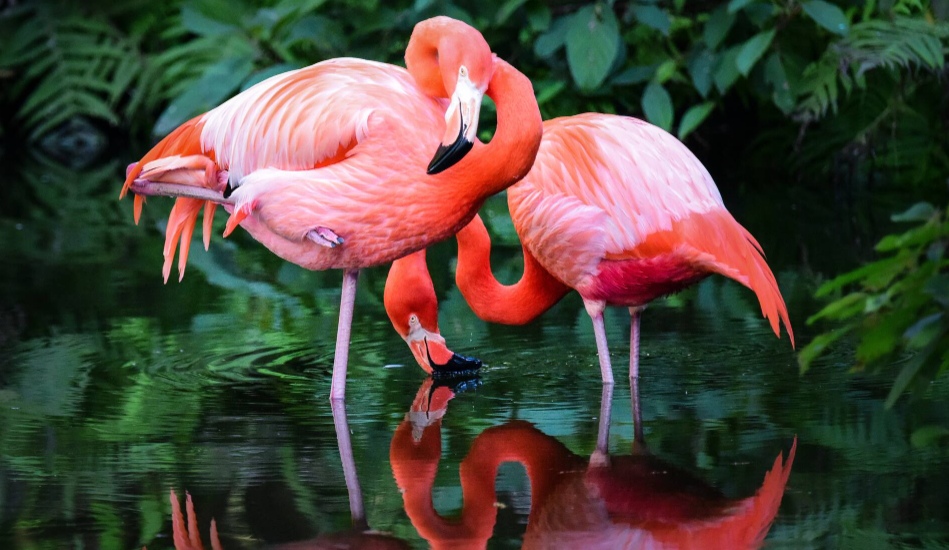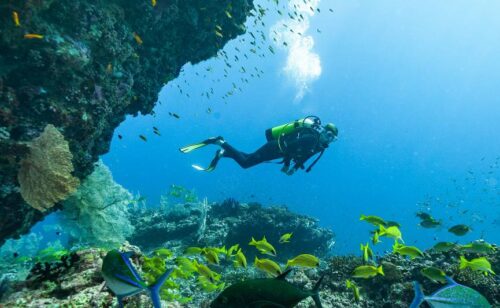Research Underscores Role Played by World Heritage Convention in Protecting Biodiversity
https://www.travelfoundation.org/wp-content/uploads/2024/02/research-underscores-role-played-by-world-heritage-convention-in-protecting-biodiversity.jpg 949 550 wttc2 wttc2 https://secure.gravatar.com/avatar/8ceb3c33b6d7e246ff938130ace90a65?s=96&r=g

Paris, France, February 2, 2024 / TRAVELINDEX / A UNESCO and IUCN assessment of the status of species reveals that UNESCO World Heritage sites harbour over 20% of mapped global species richness within just 1% of the Earth’s surface. Safeguarding these biodiversity hotspots is essential if the the Kunming – Montreal Global Biodiversity Framework is to be achieved. UNESCO is appealing to the 195 States Parties to the Convention to scale up investment in the conservation of their sites, and to nominate all remaining areas key to biodiversity conservation for World Heritage inscription.
Biodiversity in WHS
“This study demonstrates the importance of UNESCO World Heritage sites in protecting biodiversity. These 1,157 sites are not only historically and culturally outstanding, they are also critical to the preservation of the diversity of life on Earth, maintaining essential ecosystem services, and addressing climate disruption.” Audrey Azoulay, UNESCO Director-General
The UNESCO and IUCN first-time assessment of the status and trends of species reveals that UNESCO World Heritage sites make up less than 1% of the Earth’s surface, yet they harbour more than 20% of mapped global species richness, including more than 75,000 species of plants including trees and over 30,000 species of mammals, birds, fishes, reptiles and amphibians.
These sites serve as formidable natural observatories for advancing scientific knowledge thanks to the concentration of over half of all mammals, birds and hard corals species in the world. They are also an endless source of inspiration for new environmental protection initiatives.
The last line of defense against extinction
The World Heritage Convention confers the highest level of international protection to some of the most significant sites for biodiversity conservation in the world. These sites are estimated to protect over 20,000 threatened species, including up to one-third of all elephants, tigers and pandas, and at least one-tenth of great apes, lions and rhinos.
For some species on the brink of extinction, World Heritage sites have become the last line of defense. They are home to all remaining Javan Rhinos, Vaquitas (the world’s smallest cetacean) and Pink Iguanas, as well as more than half of all Sumatran Rhinos, Sumatran Orangutans and Mountain Gorillas.
The World Heritage Convention enables coordinated initiatives with all relevant stakeholders: local populations, national and regional authorities, international organizations, among others – resulting in many conservation success stories. For example, actions undertaken in the Kaziranga National Park (India) and Chitwan National Park (Nepal) since their inscription on the UNESCO World Heritage List in the mid-1980s have more than doubled the population of Greater one-horned Rhinos to around 4,000 individuals.
Humanity and biodiversity are deeply intertwined
The benefits provided by biodiversity are innumerable and form the bedrock of our relationship with nature. The variety of ecosystems within UNESCO World Heritage sites maintain important environmental services for people, such as protection of water resources, as well as providing jobs and income through sustainable activities. UNESCO World Heritage sites are also instrumental to further strengthen the link between nature and culture, as many cultural sites, including those in urban areas, can also protect important biodiversity and are an ally in efforts to halt nature loss.
The clock is ticking for immediate action
However, there is an urgent need to strengthen conservation measures: every 1°C increase in global temperature could double the number of species threatened by dangerous climate conditions. Given their role as vital biodiversity hotspots, UNESCO World Heritage sites must be protected at all costs by the States Parties of the Convention.
World Heritage sites key to achieving the global objective of halting biodiversity loss
UNESCO encourages member states to prioritize World Heritage sites in National Biodiversity Strategies and Action Plans (NBSAPs), since they are key to moving the Kunming-Montreal Global Biodiversity Framework (GBF) into action. The study is an additional tool for site managers to take the necessary actions to achieve these objectives.
By 2025, all World Heritage site managers will be trained in climate change adaptation strategies, and by 2029 all sites will have a climate adaptation plan – as announced by the Director General of UNESCO in November 2022 at the 50th anniversary of the Convention.
UNESCO and IUCN thank Conservation International, the Botanic Gardens Conservation International (BGCI), the National Center for Ecological Analysis and Synthesis (NCEAS), the University of Arizona and the University of Connecticut for their contribution to this study.
First published at TravelNewsHub.com – Global Travel News






